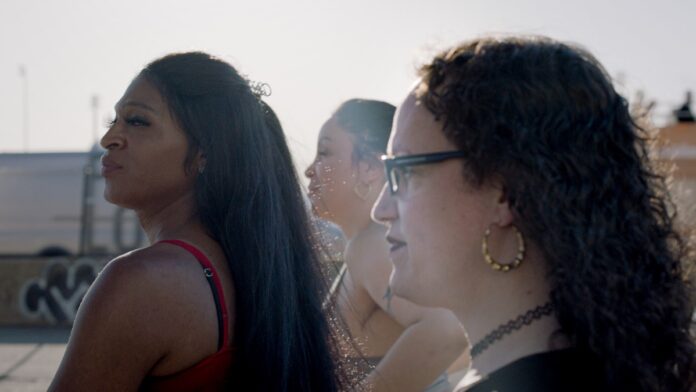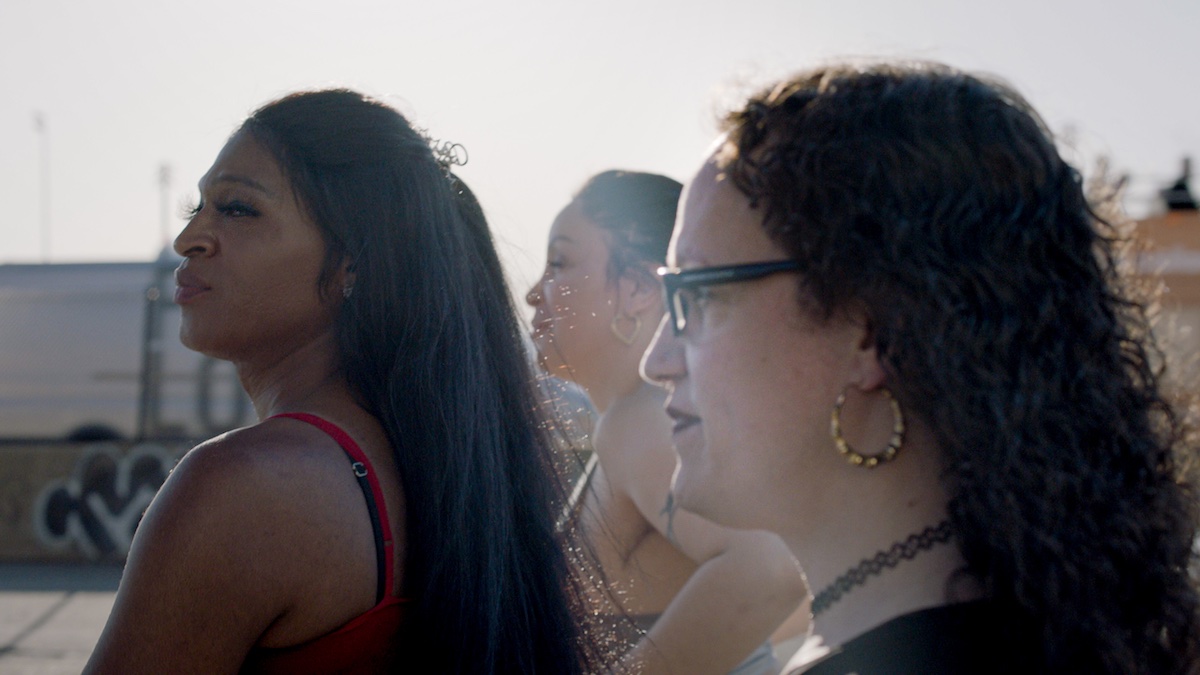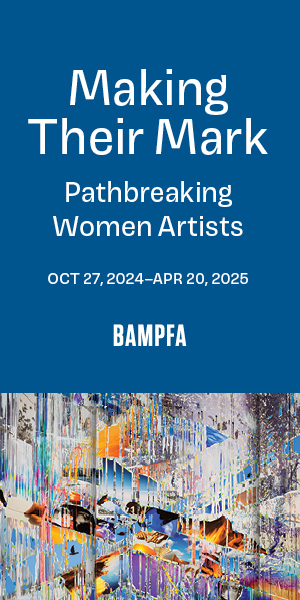Last week was not a very cheering one for local movie lovers, as both the Century 9 downtown and the East Bay’s Albany Twin closed on short notice. The former, located in a mall whose operator is bailing on the whole operation, always seemed a bit superfluous—it’s a half block from a bigger multiplex (the Metreon), and often showed many of the same releases. But the 88-year-old Albany’s shuttering is grim news not only for neighbors, but for the Bay Area’s embattled reputation as a haven for cinephiles. Operated by Landmark for the last three decades, it was one of the last first-run arthouses standing in the entire region. We’ve gone from being among the few US markets smaller distributors could count on bookings in to a place they now routinely skip for lack of available venues.
Then there was the news that city officials had approved Another Planet Entertainment’s intention to remove the Castro Theatre’s permanent raked-floor seats for future use as primarily a concert space, reducing the likelihood that this historic movie palace’s future will place much emphasis on movies. APE has verbally committed to a certain number of annual film-oriented programs… but as disappointed community activists have pointed out, it also has a history of abandoning such promises at other sites it operates. Well, get it while you can: This week, at least, offers the remainder of Frameline’s annual festival at the Castro through Sat/24.
We should also note the overlapping “Encore” screenings for the International Queer Women of Color Film Festival, offered free online Fri/23 through June 30, info here. (Apologies for not previously mentioning its in-person shows at the Presidio Theatre June 9-11—we didn’t get the memo that was happening until too late.)
As it happens, new releases this week also include a fair share of LGBTQ+ subject matter, or in one case at least enough camp value to be considered gay-adjacent.
The Stroll
Kristen Lovell’s feature documentary, co-directed with Zackary Drucker, is rooted in personal experience: Fifteen years ago she was hustling in lower Manhattan’s Meatpacking District, and was filmed for a mid-length 2007 film about homeless gay youth called Queer Streets. But the end product made her feel not “in control of my own story.” Once in better control of her life in general—off the streets, and off cocaine—she realized a nascent ambition to become a director.
The Stroll, which looks back at both the downsides and plusses of a scene now wholly eradicated by gentrification, starts out in a somewhat amateurish, indulgent way: Lovell interviewing fellow surviving veterans of “the Stroll” in a sort of talk-show fashion, everybody slavishly thanking each other for participating. But once we get caught up in their individual stories, and that of the now-unrecognizable area itself (there’s hardly a meatpacker left to be found, but plenty of upscale restaurants and designer-label shops), the movie becomes an engrossing, multilayered portrait of marginalized-communities’ histories.
Archival footage stretches back decades, one running thread being the fury of the late Sylvia Rivera, a pioneering activist increasingly angered by the mainstream gay community’s assimilationist dismissal of transpersons and other minorities within the minority. That disjunction is seen here as illustrated again by the 2000 murder of transwoman Amanda Milan, which went ignored even as the then-recent killing of Matthew Shepard remained a national rallying point against homophobia.
Lovell’s erstwhile colleagues on “The Stroll,” many also originally runaways from abuse, religious zealotry and so forth, have their own hair-raising stories about violent attacks as well. They recall being routinely targeted by NYPD—though several cops were also clients, on the sly. But while some did not live long enough to be interviewed here, those that did miss the sense of community safeguarding and supportiveness that alleviated hardship. They are clearly in better life circumstances now—as are US transpersons in general, despite conservative pushback—yet there’s a twinge of nostalgia for an outwardly rough but still more welcoming neighborhood since upscaled beyond recognition by Mayors Giuliani, Bloomberg, etc.
As ever, “progress” seldom makes room for the problematic underclasses; it simply squeezes them out. Its complex portrait of changing times enhanced by some creative stylistic means, including animated sequences, The Stroll (which premieres on HBO and HBO Max this Wed/21) ends up a first-rate chapter in neglected queer history.
Sublime
Raising expectations of a familiar coming out narrative, but eking out a slightly different path instead, is writer-director Mariano Biasin’s Argentine debut feature. Manu (Martin Miller) and Felipe (Teo Inama Chiabrando) are almost inseparable—an opening childhood home movie shows how one is miserable at his own birthday party until the other shows up. Now teenagers, they’ve begun to acquire girlfriends, as well as other interests. Yet they remain each other’s MVP, particularly as they’re in a band together. Felipe is a natural frontman, but Manu constitutes the real talent without which their garage act would flounder. That whole dynamic risks falling out of balance once Manu begins experiencing new, more amorous feelings towards his BFF, and doesn’t know which would be worse: Acting on those feelings, or suppressing them.
Sublime is not a wish-fulfillment fantasy of young love, giving its 16-year-old protagonists plenty of room for realistic inarticulacy and inaction. But it’s also pleasing in painting their middle class milieu as tolerant of change—no one here is going to freak out over Manu exploring his still-in-progress sexual identity. While these may be universally typical youth in many respects, they’re also more sophisticated about certain matters than prior generations.
The script can feel a little under-defined in narrative terms, being driven more by psychological insight (and the leading characters’ devotion to their pretty decent, emo-rock-style music) than melodrama. Still, it sensitively captures a formative uncertainty about relationships in ways that are refreshing, neither too-idealized or a cautionary tale. It was a relief to see one new gay coming-of-age depiction that does not hinge on the protagonist being mortifyingly outed to all via social media by vindictive peers. Cinephobia Releasing launches Sublime on North American home formats (including major streaming platforms) Tues/20.
Mad Heidi
There is no room for subtlety in the cartoon universe of this spoof movie, which Fathom Events is playing in U.S. theaters (including SF’s Metreon, the Century 20 in Daly City, and Emeryville’s Bay Street 16) this Wed/21 only.
It repurposes Johanna Spyri’s innocent Alpine heroine of the 1880s—most famously played by Shirley Temple in one of at least 20 prior screen incarnations—as an all-grown-up Swiss miss. Her sylvan life with grumpy Grandfather (David Schofield) and fuck-buddy goatherd Peter (Kel Matsena) is cruelly ended by evil agents of President Melii (Starship Troopers’ Casper Van Dien, whose comedic touch is too hamfisted even for this barn-door-broad enterprise). The latter is a dictator whose nationalist zealotry encompasses plans to conquer the world via cheese, wiping out any lactose-intolerant resistance en route.
Her loved ones dead or assumed so, Heidi (Alice Lucy) is thrown into a sort of concentration camp sending up 1970s Nazisploitation and Women In Prison movies, complete with female bodybuilders, wrestling competitions, torture, one Frau Rottweiler (Katja Kolm), and perverse uses for bratwurst. Naturally, our heroine escapes, managing to reawaken the cheese-narcotized conscience of The People and overthrow tyranny.
This crowdfunded feature by co-directors Johannes Hartmann and Sandro Klopfstein (which is being shown here in an English-language version) looks great for such an ostensibly non-pro enterprise. It’s lively and colorful, with ninjas, zombies, the de rigueur training montage, and CGI gore a-plenty. But its humor is dumb and repetitive, too much so to get many laughs—though glugging a few beers may help in that regard.
You’ve probably seen worse genre spoofs (like that horrible run of 2000s films like Disaster Movie, Epic Movie, Vampires Suck, Dance Flick etc.), but given this one’s surprising surfeit of energy and style, it’s disappointing that the darts aimed at stereotypical Swiss culture, exploitation cinema, et al. are so blunt. It’s an ersatz grindhouse movie whose 92 minutes might better have been reduced to the enticing cheese of a mock trailer in Tarantino’s 2007 Grindhouse anthology.





